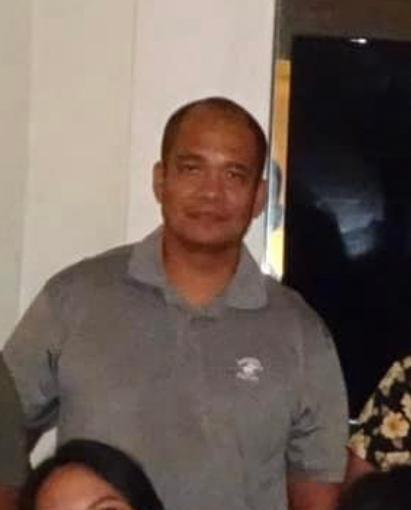The Supreme Court of Guam said today in a ruling authored by Justice Katherine Maraman that a Dededo cop’s testimony under oath about a drug arrest could not be trusted, that his search of a vehicle he stopped was illegal, and that the drugs he found that led to the arrest of Zerxes Viva on December 28, 2019 could not be used in trial against him.

Four years ago to the date, Sgt. Ephraim Amaguin pulled over Mr. Viva in his Silver Nissan Kick for allegedly failing to stop at a stop sign along North Luisa Street in Tumon. According to the prosecutor’s affidavit of probable cause used to bring the original charges against him, Mr. Viva gave Mr. Amaguin consent to search his car. Mr. Amaguin found more than 10 grams of methamphetamine and other drug paraphernalia in the car.
It was the previous Office of the Attorney General that brought drug trafficking charges against Mr. Viva based on Mr. Amaguin’s assertions.
Mr. Viva took his case to trial, and in 2022 the Superior Court of Guam (the trial court) held a suppression hearing regarding the drugs to determine whether the drugs found could be used as evidence against the defendant. Mr. Viva asserted he did not give consent to Mr. Amaguin to search his car, and that the cop had lied.
The trial court on October 11, 2022 determined the prosecutor could not use the drugs found in the car against him at trial, effectively neutering the case against him.
Both the trial court and the Supreme Court of Guam gave stern reviews of the testimony Mr. Amaguin and other officers gave at that suppression hearing, calling into question his credibility and the veracity of his testimony under oath.
Under questioning, Mr. Amaguin recounted the pull over, how he asked Mr. Viva if he had any drugs on him, and for permission to search his car.
“Sgt. Amaguin testified to this conversation happening when the two were standing outside the vehicle; however, he later testified that he could not recall when in the string of events this conversation had occurred,” Ms. Maraman wrote as part of her summary of what happened at Viva’s trial. “He also testified that the car door was closed during this conversation, but later said it was open.”
According to the trial court record, Mr. Amaguin called police officers Christopher Champion and Jonathan Conner for backup. Mr. Conner told the court none of them read Mr. Viva his Miranda Rights, but Mr. Champion said he read Mr. Viva his rights at the Dededo Police Precinct after he arrested him at the scene in Tumon.
“[T]he trial court questioned the truthfulness of the officers’ testimony and ultimately did not find it persuasive,” Ms. Maraman’s decision states. “Instead, the trial court found the officers presented inconsistent testimony and that it was unclear whether Viva consented to the search.”

“The Fourth Amendment protects against unreasonable searches and seizures and applies to Guam through … the Organic Act of Guam,” Ms. Maraman wrote. Citing a 1999 Supreme Court of Guam case, she wrote “A search or seizure made without a warrant is presumed to be unreasonable.” She went on to write the local supreme court’s recognition of an exception to the warrant requirement being consent to search.
The government, however, “bears the burden of proving the lawfulness of the search.”
Her words are important because of the sheer number of drug possession and trafficking charges against defendants currently awaiting trial that have been based on disputed ‘consent-to-search’ testimony by police stemming from simple traffic stops. The majority of these events happened in Dededo and involve the Dededo Police Precinct, which has been the subject of controversy in its handling of cases.
Among those are current investigations into the alleged assault of an elderly cancer patient, and the beating of an unarmed man who was not resisting arrest, which was caught on video.
The government bears the burden of showing, “by a preponderance of the evidence, that Viva consented to the search,” Ms. Maraman wrote.
The Office of the Attorney General argued that “There was no evidence to contradict the officer’s testimony that the defendant consented to the search.”
The Supreme Court of Guam disagreed, with Ms. Maraman writing, “Viva need not produce evidence to contradict Sgt. Amaguin’s testimony about obtaining consent. Rather, the People had the burden of proving that Viva gave valid consent. The evidence they presented to the trial court was fraught with credibility issues, and it was the trial court’s prerogative to determine whether these issues were sufficiently addressed.”
GPD spokeswoman Berlyn Savella said her agency will need some time to prepare a reaction to the news, when asked for comment about the Supreme Court’s decision. Kandit also asked Ms. Savella whether police officers on the traffic beat undergo training or continuing education on basic civil rights. She said our questions were routed to GPD’s legal affairs division.
[Open source photo of Amaguin: Facebook]




2 Comments
Imelda Tanapino
12/28/2023 at 11:05 PM
Analysis:
Jabba the Meriman:
Actions and Desires Overview:
judges people partially, wants to make self-serving rules for everyone, overweight-big time, supports overeating, gluttony, and corruption, takes bribes in the form of respect and influence, sometimes monetary.
Close ally to [censored] judges Sisson, Perez and other retired [censored] judges.
Imelda Tanapino
12/28/2023 at 11:26 PM
Welcome to the “developing country” 3rd world [censored] corruption.
You [censored] bring your corrupt CULTURE wherever you (and your greedy, hungry [censored] backers) invade.